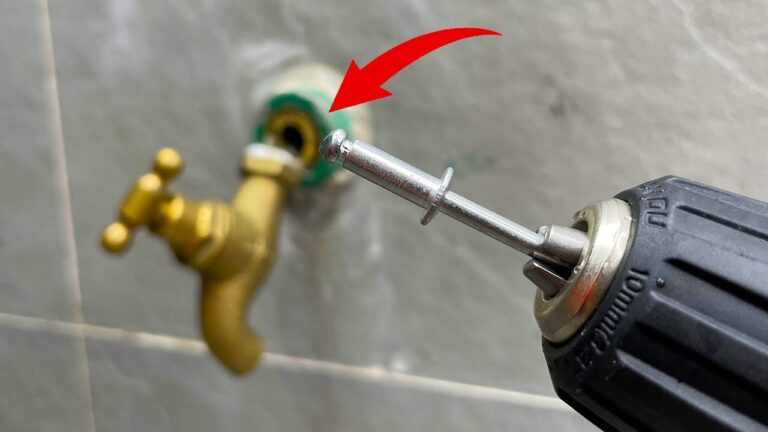Master Electrician Job: Description & Salary

Master Electrician Job Description Template
A master electrician is a highly skilled professional who is responsible for overseeing and managing electrical projects. They are experts in all aspects of electrical systems and have in-depth knowledge of electrical codes and regulations. Their main role is to ensure that electrical systems are installed, repaired, and maintained correctly and safely. One important aspect of the master electrician’s job is to read and interpret blueprints and technical drawings. They use this information to plan and coordinate the installation of electrical systems in buildings and other structures. They also determine the appropriate materials and equipment needed for the project. Another crucial responsibility of a master electrician is to ensure compliance with electrical codes and regulations. They are responsible for inspecting electrical installations to ensure that they meet safety standards and are in compliance with local, state, and national regulations. They also provide guidance and advice to other electricians and electrical contractors to ensure that their work is up to code. Attention to detail is a key trait for a master electrician as they need to be meticulous in their work to ensure that all electrical systems are installed correctly and function properly. They must be able to identify and troubleshoot electrical issues and make necessary repairs or adjustments. Leadership skills are also important for a master electrician as they often supervise and coordinate the work of other electricians and apprentices. They must be able to communicate effectively and provide clear instructions to their team members. In conclusion, a master electrician plays a crucial role in ensuring the safety and functionality of electrical systems. Their expertise and knowledge are essential in managing and overseeing electrical projects.Master Electrician Responsibilities
Master Electrician Requirements
How Much Does A Master Electrician Make?
Master Electrician Salary
| City | State | Salary |
|---|---|---|
| New York City | New York | $89,000 |
| Los Angeles | California | $82,000 |
| Chicago | Illinois | $76,000 |
| Houston | Texas | $72,000 |
A Master Electrician is a highly skilled professional who has obtained the highest level of certification in the field of electrical work. They are responsible for overseeing and managing complex electrical projects, ensuring safety and compliance with electrical codes and regulations. The salary of a Master Electrician can vary depending on factors such as experience, location, and industry. The table above provides an overview of the average salaries for Master Electricians in different cities across the United States. It is important to note that these figures are approximate and may vary based on individual qualifications and job market conditions.
Master Electrician Salaries by Country
Top Paying Countries for Master Electrician
| Country | Average Salary (USD) |
|---|---|
| Switzerland | 100,000 |
| Norway | 85,000 |
| United States | 80,000 |
| Australia | 75,000 |
| Canada | 70,000 |
A master electrician can earn a high salary in countries such as Switzerland, Norway, United States, Australia, and Canada. These countries offer attractive compensation packages for skilled electricians due to the demand for their expertise and the high cost of living. In Switzerland, master electricians can expect to earn an average salary of $100,000 annually, making it one of the top-paying countries for this profession. Norway follows closely with an average salary of $85,000, while the United States, Australia, and Canada offer average salaries of $80,000, $75,000, and $70,000 respectively. These salaries reflect the importance and value placed on the skills and knowledge of master electricians in these countries.
A video on the topic Master Electrician
Video Source : Mike HolmesInterview Questions for Master Electrician
1. Can you briefly explain your experience as a Master Electrician?
As a Master Electrician, I have over 10 years of experience in the electrical field. I have worked on various projects, including residential, commercial, and industrial installations. I have also supervised and trained apprentices, ensuring compliance with electrical codes and safety regulations.
2. What certifications and licenses do you hold?
I hold a valid Master Electrician license in the state of [state name] and have all the necessary certifications, including OSHA 30-hour safety training, First Aid/CPR certification, and NFPA 70E training. I also regularly attend workshops and seminars to stay updated with the latest electrical codes and industry trends.
3. How do you ensure compliance with electrical codes and safety regulations?
Compliance with electrical codes and safety regulations is of utmost importance in my work. I ensure compliance by staying updated with the latest codes and regulations, conducting thorough inspections, and adhering to best practices in electrical installations. I also educate and train my team members to prioritize safety in all our projects.
4. Can you explain your process for troubleshooting electrical issues?
When troubleshooting electrical issues, I follow a systematic approach. I start by gathering information from the client about the problem and any recent changes or incidents. Then, I conduct a visual inspection to identify any visible signs of damage or faults. I use various testing tools and equipment to diagnose the issue, and once identified, I proceed with the necessary repairs or replacements.
5. How do you handle electrical emergencies?
In the event of an electrical emergency, I prioritize the safety of both the occupants and the property. I ensure that the power source is immediately shut off to prevent any further damage or hazards. I then assess the situation and take appropriate measures to resolve the emergency, such as repairing faulty wiring, replacing damaged components, or coordinating with other professionals if necessary.
6. Can you describe a challenging electrical project you have worked on and how you resolved it?
One challenging project I worked on involved upgrading the electrical system in an old commercial building. The building had outdated wiring and insufficient capacity to meet the modern electrical demands. To resolve the issue, I carefully planned the project, considering the building’s layout and usage requirements. I coordinated with other trades to minimize disruptions and completed the installation within the specified timeline, ensuring compliance with all codes and regulations.
7. How do you ensure effective communication with clients and team members?
Effective communication is essential in any project. I ensure clear communication with clients by actively listening to their needs, providing regular updates on project progress, and addressing any concerns or questions they may have. With team members, I encourage open and honest communication, ensuring everyone understands their roles and responsibilities. I also conduct regular meetings and provide clear instructions to ensure smooth workflow and successful project completion.
8. How do you stay updated with the latest advancements in the electrical industry?
To stay updated with the latest advancements in the electrical industry, I regularly attend workshops, conferences, and seminars. I also subscribe to industry publications and online forums to stay informed about new technologies, products, and best practices. Additionally, I actively participate in professional organizations and engage in networking opportunities to learn from fellow industry experts.
9. How do you prioritize safety in your work?
Safety is always my top priority. I ensure that all safety protocols and procedures are followed on every job site. I provide proper training to my team members on safety practices and ensure they have access to appropriate personal protective equipment. I conduct regular safety inspections, identify and address any potential hazards, and promote a safety-conscious culture among my team members.
10. Can you explain your experience in managing electrical projects from start to finish?
Throughout my career, I have managed numerous electrical projects from start to finish. This includes initial project planning, estimating costs, creating project timelines, coordinating with other trades and contractors, procuring materials, overseeing installations, conducting quality inspections, and ensuring client satisfaction. I prioritize effective project management, ensuring that projects are completed on time, within budget, and to the highest standards of quality and safety.






